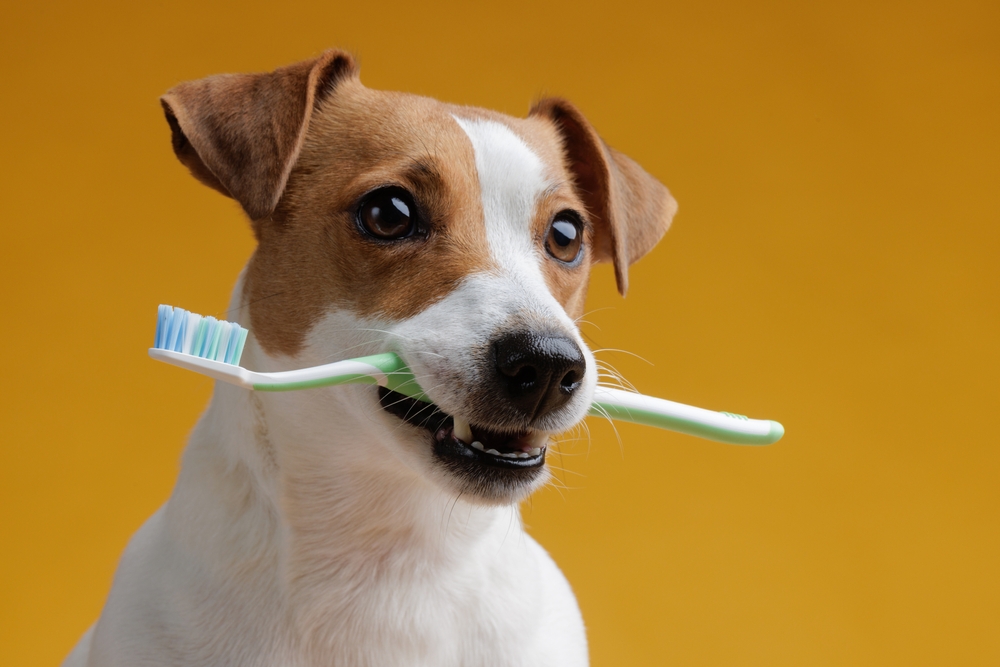


Your pet’s oral health plays a vital role in their overall well-being. However, dental issues are among the most commonly overlooked health concerns in pets. Left untreated, these problems can lead to pain, infection, and even systemic health complications. At Lakeville Family Pet Clinic, we’re here to help you understand common dental problems in pets and provide tips on how to keep your furry friend’s teeth and gums healthy.
Periodontal Disease
Periodontal disease is the most prevalent dental issue in pets, affecting up to 80% of dogs and cats over the age of three. It begins with plaque buildup that hardens into tartar, leading to inflammation of the gums (gingivitis) and progressing to damage the bone and tissue supporting the teeth.
Signs to watch for:
• Bad breath
• Red or swollen gums
• Difficulty eating
• Loose or missing teeth
Tooth Fractures
Pets, especially dogs, can fracture their teeth by chewing on hard objects such as bones, toys, or sticks. A fractured tooth can expose the pulp, causing pain and increasing the risk of infection.
Signs to watch for:
• Sensitivity to touch around the mouth
• Drooling
• Reluctance to eat
Oral Infections
Infections can occur due to untreated dental issues or injuries to the mouth. These infections can spread to other parts of the body, including the heart, liver, and kidneys.
Signs to watch for:
• Swelling around the mouth
• Visible abscesses
• Lethargy
Retained Baby Teeth (Puppies and Kittens)
In some pets, baby teeth don’t fall out as they should, causing overcrowding and misalignment of adult teeth. This can lead to difficulty chewing and an increased risk of dental disease.
Signs to watch for:
• Overlapping or crooked teeth
• Difficulty closing the mouth
Oral Tumors or Growths
While less common, growths or tumors in the mouth may develop and require veterinary evaluation. Early detection is crucial for successful treatment.
Signs to watch for:
• Unusual lumps in the mouth
• Difficulty eating or drinking
• Persistent bad breath
How to Prevent Dental Problems in Pets
• Brush Your Pet’s Teeth Regularly: Daily brushing is the gold standard for preventing plaque and tartar buildup. Use a pet-safe toothpaste and a soft-bristled toothbrush to gently clean your pet’s teeth.
• Provide Dental Chews and Toys: Dental chews and toys designed to promote oral health can help reduce plaque and tartar. Be sure to select vet-approved products that are safe for your pet.
• Feed a Healthy Diet: Certain pet foods are formulated to support dental health. Ask your veterinarian for recommendations tailored to your pet’s needs.
• Schedule Regular Dental Exams: Routine dental checkups at Lakeville Family Pet Clinic can catch problems early and prevent serious complications. We recommend annual dental exams for most pets.
• Professional Dental Cleanings: Professional cleanings under anesthesia allow us to thoroughly clean your pet’s teeth, remove tartar, and assess for any underlying issues.
Prioritize Your Pet’s Dental Health at Lakeville Family Pet Clinic
Dental health is a vital part of your pet’s overall well-being, and taking proactive steps can help prevent painful and costly issues down the road. By staying vigilant for signs of dental problems and incorporating regular at-home care along with professional cleanings, you can ensure your furry friend enjoys a healthy, happy life. We’re here to support you in every step of your pet’s dental care journey.
If you have any concerns about your pet’s dental health, contact Lakeville Family Pet Clinic to schedule a dental checkup. Visit our office in Lakeville, Minnesota, or call (952) 595-6500 to book an appointment today.





